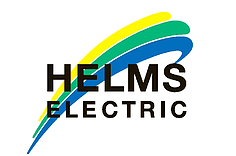Why Get An Electrical Inspection When Buying A Home?
Home ownership is one of the most important purchases that you will ever make, and it is important that a home inspection discover any underlying issues that can be costly later down the road. Before buying a home, it is important that you conduct a professional electrical inspection. A home inspection will catch most electrical issues, with the professional recommending solutions for any electrical problems that they may find.
When Should You Have an Electrical Inspection?
- When buying a home that is older than a century. Electrical wiring and components tend to be compromised in older infrastructures. In this sort of setup, the original wiring will not be able to withstand the electrical demands of modern living.
- Resale homes. A comprehensive electrical inspection should be completed when buying a resale home. Even though it may have updated wiring when it was first built, unskilled work is often done as owners renovate and add on to the electrical system. Homes that have been renovated should have a comprehensive electrical inspection in conjunction with a general home inspection.
- Before starting off a new renovation project. If you are adding to the pre-existing wiring, then an electrical inspection will inform you if your current system can support it. If they cannot and if the inspector notes that it is inefficient, then you may need to upgrade the electrical components.
Benefits of Electrical Inspection
If you schedule an electrical inspection before the sale goes through, then any underlying problems are pinned to the seller. However, if you choose not to have an inspection done, the problem becomes yours. The number of home inspections has increased each year, according to the American Society of Home Inspectors. Over 90% of home sales involve some sort of review. This points the prevalence, importance, and the effectiveness of electrical inspection to prevent most problems.
What To Expect During An Electrical Inspection
There are several types of electrical inspections. A rough-in electrical inspection includes a close examination of wires, electrical panels, conduits, and electrical boxes. The examination will ensure that all cables are properly installed, and that any fire hazards are mitigated. During a service inspection, the service panel will be observed to make sure that it has been properly installed and secured. The inspector will also ensure that it is properly grounded to prevent any accidental electrical shocks. The final inspection includes the examination or installation of breakers to provide a fully functional electrical system.
